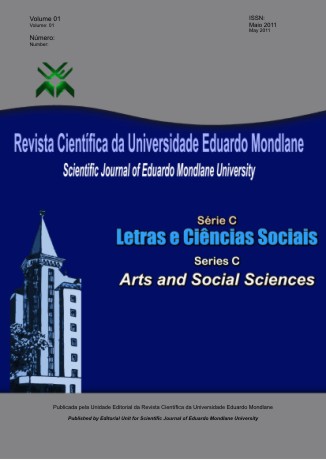Sobre a Revista
A Série Letras e Ciências Sociais é uma série de publicação da Revista Científica da UEM (RC-UEM), publicada pela Unidade Editorial da Revista Científica da Universidade Eduardo Mondlane. É de Acesso Livre, bianual e tem como principal objectivo difundir os resultados das actividades científicas realizadas por docentes e investigadores da Universidade Eduardo Mondlane (UEM) e de outras instituições de ensino superior e de investigação na área das Letras e Ciências Sociais.
Número Atual
Vol. 5 N.º 2 (2025): Linguística Bantu de Moçambique: reflexos da teoria à política linguística




